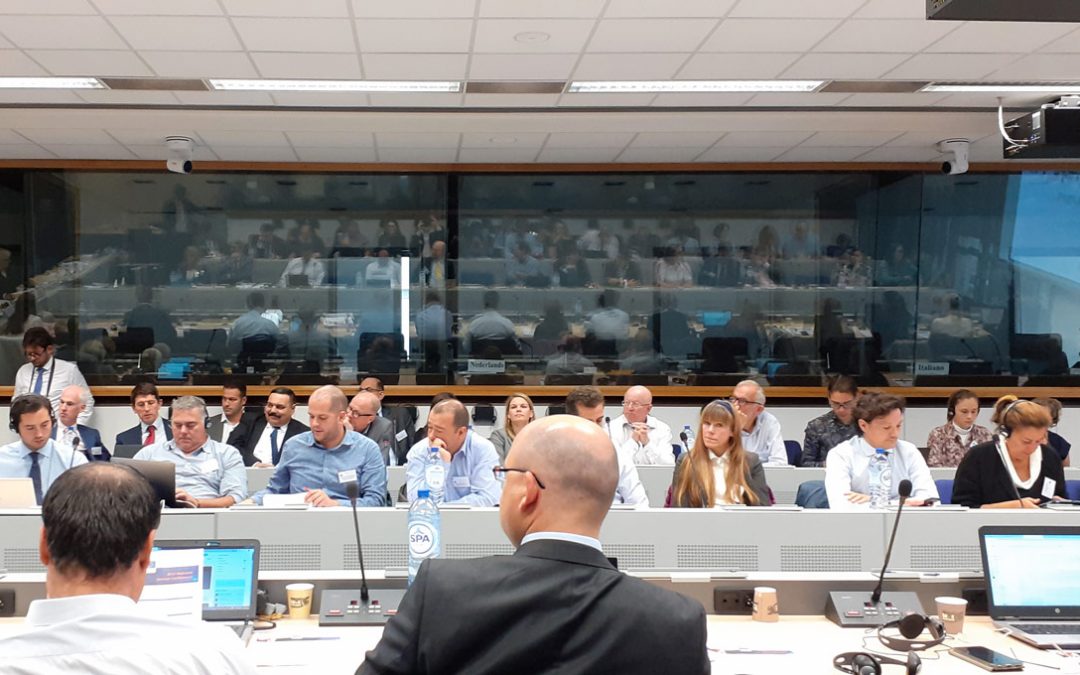The Broadband Competence Offices (BCOs) of the European Member States met in Brussels on the 26th of September at their annual conference. The network exchanged views on the future of broadband financing in the light of the ongoing negotiations on the Multiannual Financial Framework 2021-2027. In the workgroup “Gap-funding”, the members discussed possibilities of using the investment model to promote rural areas. BCOs use and share knowledge and solutions on these topics via the information platform Broadband Europe that was presented during the event.
Phil Hogan, Commissioner for Agriculture and Rural Development, opened the event, highlighting the important and successful work of the BCOs in providing information and assistance to citizens on broadband deployment, particularly in rural and remote areas. Subsequently, the European Commission (DGs Connect, Agriculture and Regional and Urban Policy) presented their forthcoming plans for EU broadband funding after 2020, in particular for rural areas and the agricultural sector. This includes an effective information policy supported by the Broadband Europe information platform and a Guide to High-Speed Broadband Investment. Extensive discussions among regional and national BCOs took place in the context of the thematic workshops on “Mapping”, “Municipal network model”, “Gap-funding” and “Citizens initiatives”.
CEF Digital
The most important instrument for financing broadband deployment is the Connecting Europe Digital Facility (CEF Digital), which promotes strategic projects for the development of digital infrastructures. The European Commission proposes a CEF budget of 3 billion euros for the period 2021-2027. In particular, the expansion of the new 5G technology is helping to achieve European connectivity goals: by 2020, 5G services should be deployed in at least one major city in all European Member States and until 2025 in all urban areas and all main roads. Franco Accordino, Head of Unit DG Connect, presented the priorities of CEF Digital:
-
- support socio-economic drivers for the development of gigabit networks (“5G communities”);
- Initiation and implementation of the next WiFi4EU programme and the synergetic creation of 5G projects;
- establishing and expanding international/cross-border backbone networks;
- availability of operational digital platforms that support the flow, storage, processing and analysis of transport and/or energy infrastructure;
- creation of cross-border 5G corridors for automotive, rail and inland waterways.
-
The negotiations on the Multiannual Financial Framework 2021-2027 will continue until the end of 2019. The first Multiannual Work Program is expected by the end of 2020.
Broadband Europe
The Broadband Europe section of the EU Commission’s Digital Single Market website summarises all developments regarding policy instruments and strategies for broadband expansion in the EU as well as the Member States. Thus, it contributes as an information platform to achieve the goals of the European Gigabit Society 2025. During the annual conference, the aconium GmbH presented Broadband Europe and showed the BCOs their options to actively shape the portal – for example, national strategies, financing instruments and responsible authorities are presented on the individual country pages. In addition, local and regional broadband expansion projects are presented in a comprehensive good practice database. Such national projects will also be awarded in a Europe-wide competition, the European Broadband Awards. The BCOs act as multipliers in this context: they can identify interesting projects and encourage their participation in the annual competition.
Working Group “Gap Funding”
In 2019, the BCO Network Support Facility, which initiated the network of national and regional Competence Officies at European level, has set up working groups on relevant topics such as mapping, citizens’ initiatives, municipal operators and investment models such as the economic gap model. These working groups came together for their first personal meetings at the annual conference.
As the BCO for Germany, the Federal Broadband Office leads the working group “Gap Funding”. This group exchanged first views on the results of their previous work in the national competence centers. In the run-up to the meeting, the Member States received a comprehensive questionnaire on the political, financial and legal aspects of the implementation of the economic gap model in the individual countries. It also discussed the creation of new incentives for investment and promotion, especially in rural areas, which are currently not taken into account in the support schemes of some Member States. The meeting at the Annual Meeting was the prelude to future collaboration and created the basis for the BCO Networks Investment Models Workshop on October 23, 2019.
Background
The European Commission initiates and supports the provision of a European network of Broadband Competence Offices (BCOs), thereby contributing to the objectives of the Digital Single Market 2020 and the Gigabit Society. BCOs inform citizens and businesses, and provide the local and regional authorities with technical means to invest efficiently in broadband. As a national broadband competence center, the Federal Broadband Office is the central point of contact for German stakeholders and regularly participates in network meetings, workshops and thematic groups.
The aconium GmbH is responsible for and operates the Federal Broadband Bureau as a competence center of the BMVI and as a national BCO.
The aconium GmbH supports the Directorate-General for Communication Networks, Content and Technologies in the management and maintenance of the European broadband portal Broadband Europe.

